#economic oppression
Text
Having examined marriage, Engels turns his attention to the patriarchal family, as precious to the Victorians as it later became to conservative sociology in the period of reaction. In Engels' tart phrase, the family's "essential points are the assimilation of the unfree element and the paternal authority." "It is founded on male supremacy for the pronounced purpose of breeding children of indisputable paternal lineage. The latter is required because these children shall later on inherit the fortune of their father." Despite the decline of inherited wealth, this is still so; legitimacy is quite as important now, and thought to justify the cost and education of rearing the young in the nuclear family.
The ideal type of the patriarchal family and the ancestor of our own is the Roman family, whence come both the term and the legal forms and precedents used in the West. Originally, the word familia did not, Engels cheerfully informs us
“. . . signify the composite ideal of sentimentality and domestic strife in the present day philistine mind. Among the Romans it did not even apply in the beginning to the leading couple and its children, but to the slaves alone. Famulus means domestic slave, and familia is the aggregate number of slaves belonging to one man . . . The expression [familia] was invented by the Romans in order to designate a new social organism the head of which had a wife, children and a number of slaves under his paternal authority and according to Roman law, the right of life and death over all of them.”
To this, Engels adds Marx's observation that
“the word is, therefore, not older than the ironclad family system of the Latin tribes, which arose after the introduction of agriculture and of lawful slavery . . . The modern family contains the germ not only of slavery (servitus) but also of serfdom. . . It comprises in miniature all those contrasts that later on develop more broadly in society and the state.”
In noting its economic character Engels is calling attention to the fact that the family is actually a financial unit, something which his contemporaries, like our own, prefer to ignore. Due to the nature of its origins, the family is committed to the idea of property in persons and in goods. "Monogamy was the first form of the family not founded on natural but on economic conditions, viz. the victory of private property over primitive and natural collectivism."
Whatever the value of Engels' insistence on the priority of a "primitive and natural collectivism," the cohesion of the patriarchal family and the authority of its head have consistently relied (and continue to do so) on the economic dependence of its members. Its stability and its efficiency also rely upon its ability to divide its members by hierarchical roles and maintain them in such through innumerable forms of coercion—social, religious, legal, ideological, etc. As Engels makes clear, such a collection of persons cannot be said to be free agents. Historically, nearly the entire basis of their association is not affection but constraint: much of it remains so.
-Kate Millett, Sexual Politics
14 notes
·
View notes
Text
You’re Lucky You Have a House, Peasant!
A history of company towns
by Joyce Rice and Kevin Moore
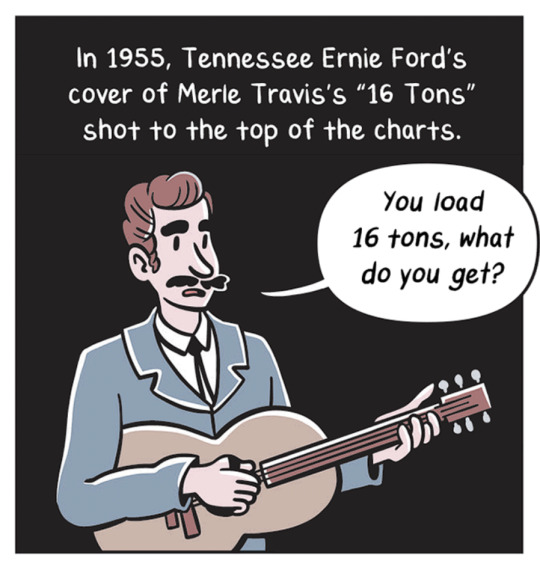
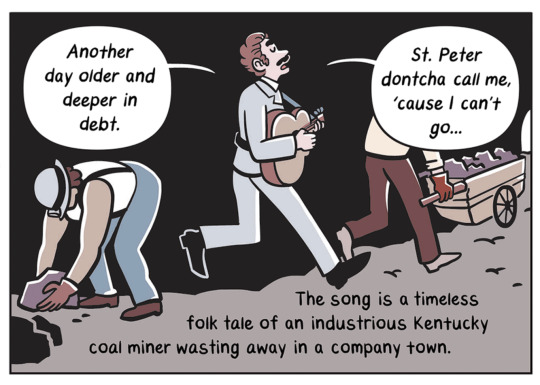
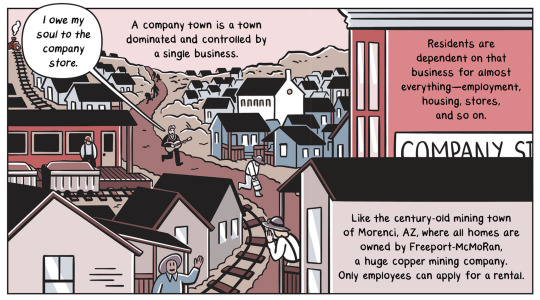
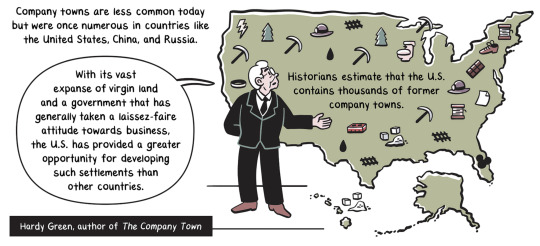
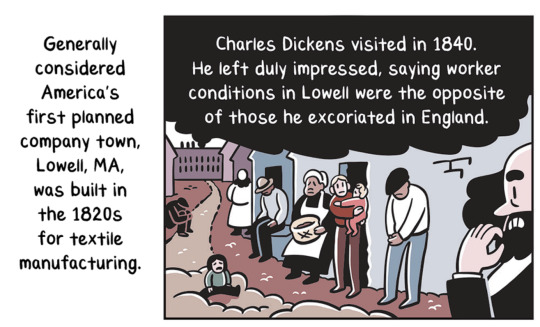
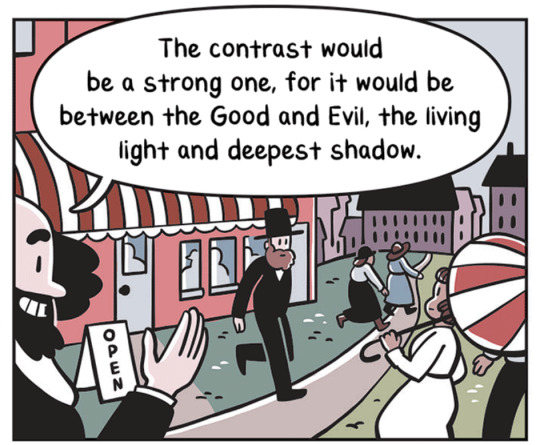
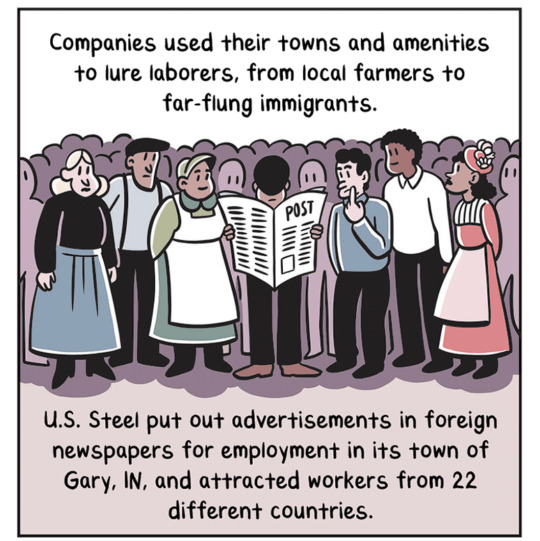

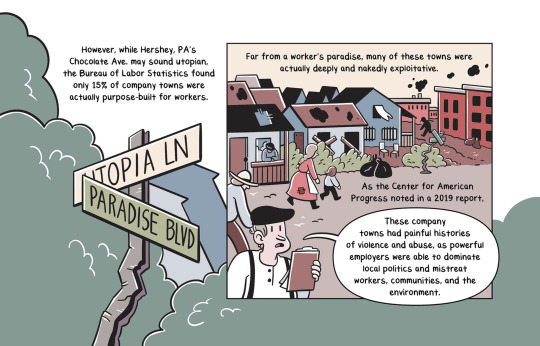
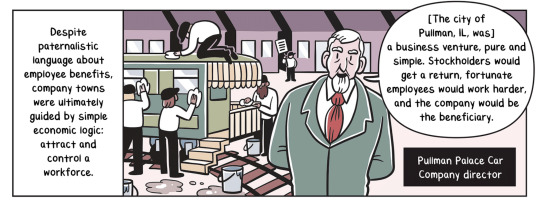

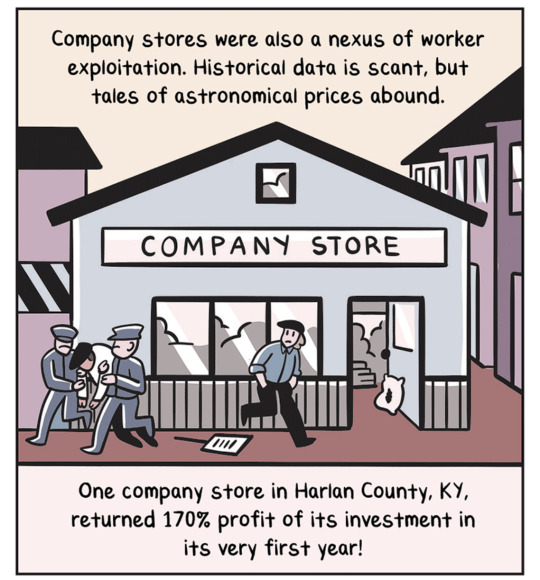
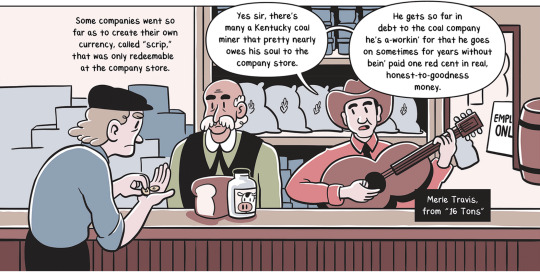
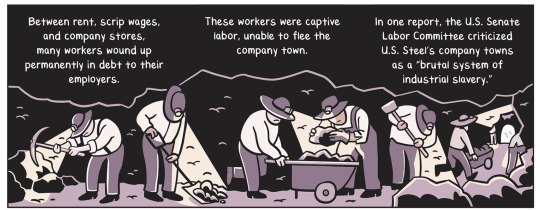

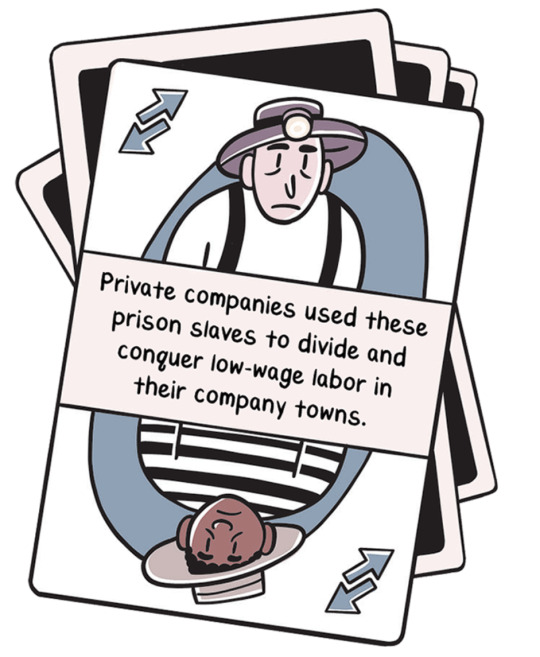
(Continue Reading)
TheNib.com
@thenib
#politics#the left#the nib#comic#webcomic#labor#Labor Unions#organized labor#history#capitalism#economic inequality#oppression#poverty#working class#long post#long reads
14K notes
·
View notes
Text
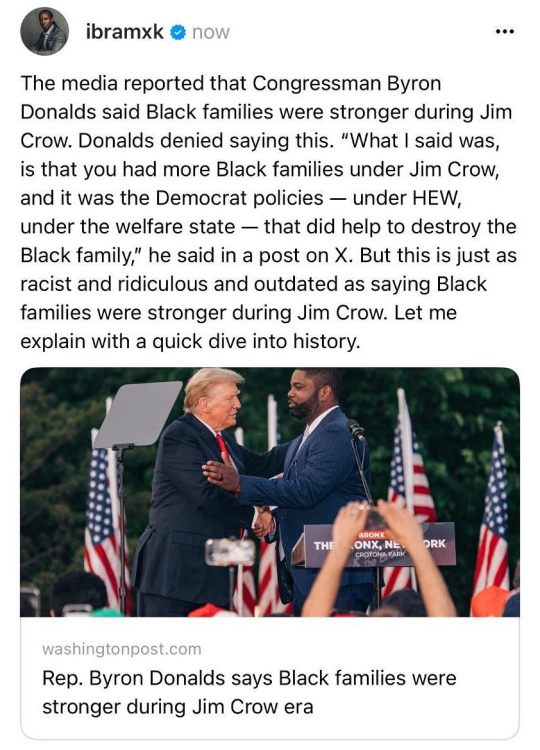
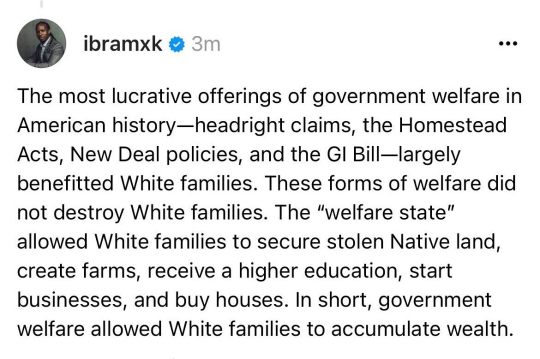
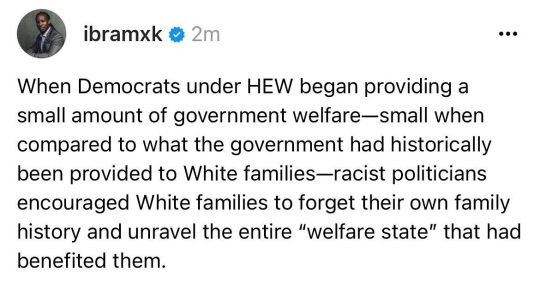
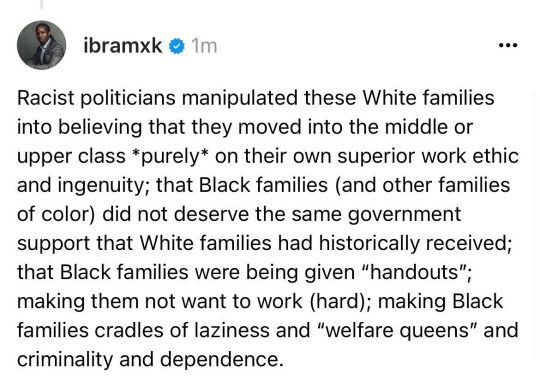
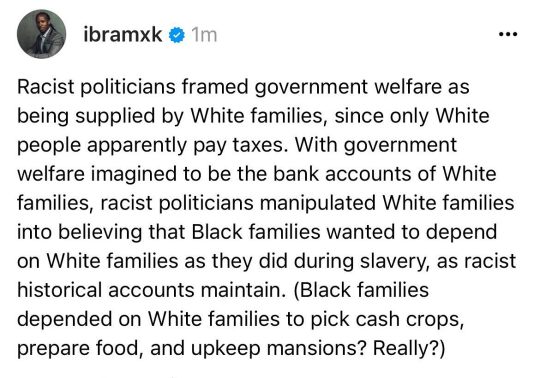
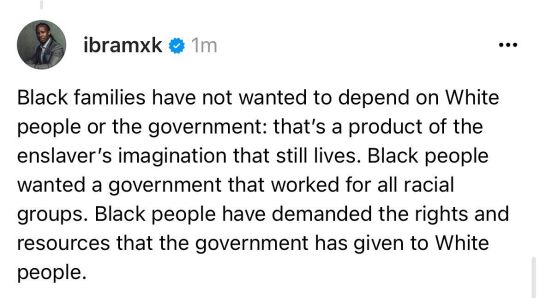
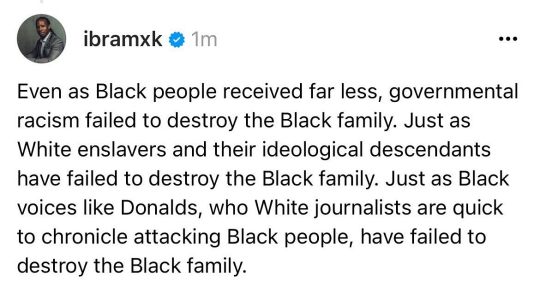
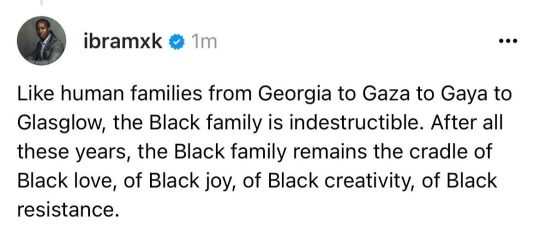

#jim crow#black family strength myth#black history#white supremacy#brian donalds#black republicans#welfare programs#government assistance#racial injustice#homestead act#new deal#gi bill#white privilege#wealth disparity#racial hatred#black family oppression#white supremacist narratives#systemic racism#black family resilience#jim crow laws#black family strength#black republican lies#government welfare#oppression of black people#historical racism#welfare myths#black history distortion#economic disparities#homestead act benefits#new deal exclusions
462 notes
·
View notes
Text
Why we don’t like it when children hit us back
To all the children who have ever been told to “respect” someone that hated them.
March 21, 2023
Even those of us that are disturbed by the thought of how widespread corporal punishment still is in all ranks of society are uncomfortable at the idea of a child defending themself using violence against their oppressors and abusers. A child who hits back proves that the adults “were right all along,” that their violence was justified. Even as they would cheer an adult victim for defending themself fiercely.
Even those “child rights advocates” imagine the right child victim as one who takes it without ever stopping to love “its” owners. Tear-stained and afraid, the child is too innocent to be hit in a guilt-free manner. No one likes to imagine the Brat as Victim—the child who does, according to adultist logic, deserve being hit, because they follow their desires, because they walk the world with their head high, because they talk back, because they are loud, because they are unapologetically here, and resistant to being cast in the role of guest of a world that is just not made for them.
If we are against corporal punishment, the brat is our gotcha, the proof that it is actually not that much of an injustice. The brat unsettles us, so much that the “bad seed” is a stock character in horror, a genre that is much permeated by the adult gaze (defined as “the way children are viewed, represented and portrayed by adults; and finally society’s conception of children and the way this is perpetuated within institutions, and inherent in all interactions with children”), where the adult fear for the subversion of the structures that keep children under control is very much represented.
It might be very well true that the Brat has something unnatural and sinister about them in this world, as they are at constant war with everything that has ever been created, since everything that has been created has been built with the purpose of subjugating them. This is why it feels unnatural to watch a child hitting back instead of cowering. We feel like it’s not right. We feel like history is staring back at us, and all the horror we felt at any rebel and wayward child who has ever lived, we are feeling right now for that reject of the construct of “childhood innocence.” The child who hits back is at such clash with our construction of childhood because we defined violence in all of its forms as the province of the adult, especially the adult in authority.
The adult has an explicit sanction by the state to do violence to the child, while the child has both a social and legal prohibition to even think of defending themself with their fists. Legislation such as “parent-child tort immunity” makes this clear. The adult’s designed place is as the one who hits, and has a right and even an encouragement to do so, the one who acts, as the person. The child’s designed place is as the one who gets hit, and has an obligation to accept that, as the one who suffers acts, as the object. When a child forcibly breaks out of their place, they are reversing the supposed “natural order” in a radical way.
This is why, for the youth liberationist, there should be nothing more beautiful to witness that the child who snaps. We have an unique horror for parricide, and a terrible indifference at the 450 children murdered every year by their parents in just the USA, without even mentioning all the indirect suicides caused by parental abuse. As a Psychology Today article about so-called “parricide” puts it:
Unlike adults who kill their parents, teenagers become parricide offenders when conditions in the home are intolerable but their alternatives are limited. Unlike adults, kids cannot simply leave. The law has made it a crime for young people to run away. Juveniles who commit parricide usually do consider running away, but many do not know any place where they can seek refuge. Those who do run are generally picked up and returned home, or go back on their own: Surviving on the streets is hardly a realistic alternative for youths with meager financial resources, limited education, and few skills.
By far, the severely abused child is the most frequently encountered type of offender. According to Paul Mones, a Los Angeles attorney who specializes in defending adolescent parricide offenders, more than 90 percent have been abused by their parents. In-depth portraits of such youths have frequently shown that they killed because they could no longer tolerate conditions at home. These children were psychologically abused by one or both parents and often suffered physical, sexual, and verbal abuse as well—and witnessed it given to others in the household. They did not typically have histories of severe mental illness or of serious and extensive delinquent behavior. They were not criminally sophisticated. For them, the killings represented an act of desperation—the only way out of a family situation they could no longer endure.
- Heide, Why Kids Kill Parents, 1992.
Despite these being the most frequent conditions of “parricide,” it still brings unique disgust to think about it for most people. The sympathy extended to murdering parents is never extended even to the most desperate child, who chose to kill to not be killed. They chose to stop enduring silently, and that was their greatest crime; that is the crime of the child who hits back. Hell, children aren’t even supposed to talk back. They are not supposed to be anything but grateful for the miserable pieces of space that adults carve out in a world hostile to children for them to live following adult rules. It isn’t rare for children to notice the adult monopoly on violence and force when they interact with figures like teachers, and the way they use words like “respect.” In fact, this social dynamic has been noticed quite often:
Sometimes people use “respect” to mean “treating someone like a person” and sometimes they use “respect” to mean “treating someone like an authority” and sometimes people who are used to being treated like an authority say “if you won’t respect me I won’t respect you” and they mean “if you won’t treat me like an authority I won’t treat you like a person” and they think they’re being fair but they aren’t, and it’s not okay.
(https://soycrates.tumblr.com/post/115633137923/stimmyabby-sometimes-people-use-respect-to-mean)
But it has received almost no condemnation in the public eye. No voices have raised to contrast the adult monopoly on violence towards child bodies and child minds. No voices have raised to praise the child who hits back. Because they do deserve praise. Because the child who sets their foot down and says this belongs to me, even when it’s something like their own body that they are claiming, is committing one of the most serious crimes against adult society, who wants them dispossessed.
Sources:
“The Adult Gaze: a tool of control and oppression,”
https://livingwithoutschool.com/2021/07/29/the-adult-gaze-a-tool-of-control-and-oppression
“Filicide,” https://en.wikipedia.org/wiki/Filicide
#repost of someone else’s content#medium repost#Alba M.#purity culture#ageism#adultism#youth oppression#childism#child abuse#parental abuse#youth rights#youthlib#youth liberation#parricide#nuclear family abolition#anarchism#note: I would consider reevaluating the demonization of adults who kill their parents too#many victims remain entrapped well into adulthood#there are still a lot of issues of economic dependency and control especially for young adults#and I don’t think such a totalizing power imbalance engendered in childhood is so easily levelled#even if an adult does become financially independent#likewise for adult victims of intimate partner abuse: also structurally made difficult for them to leave#even if not criminalized to the same degree#anti-abuser aktion
2K notes
·
View notes
Text

Credit Scoring Is a Racist, Classist System that Has Us All Trapped
65 notes
·
View notes
Text

Survive the economy
#Survive the economy#economics#economy#poverty#homeless#company#ausgov#politas#auspol#tasgov#taspol#australia#fuck neoliberals#neoliberal capitalism#anthony albanese#albanese government#eat the rich#eat the fucking rich#class war#slavery#wage slavery#slave wages#oppression#repression#anti capitalism#anti slavery#antiwork#fuck the gop#fuck the idf#fuck the police
67 notes
·
View notes
Text
you want to subcategorize caste-based reservations to make them more intersectional? because you care about poor people right? cool! does that mean you're gonna increase reservations for EWS from the unreserved category to reduce/eliminate the creamy layer of the general category too (or god forbid actually conduct a caste census to get actual data) or do you only care about economic inequality when it's at the expense of acknowledging caste-based discrimination exists outside of class too...?
#re: the new judgement#dont get me wrong i am glad they are increasing reservation for ews#but is it because they actually care about ews or because they think caste and class are interchangeable -> caste doesn't exist anymore???#well.#casteism#one thing i didn't get is if they're completely eliminating reservations for economically well off dalits and bahujans or just reducing it#because im reading different things from different sources and there's a huge difference#and the second one would make a lot more sense than the first#either way. it's the selectivism for me#india#this judgement is giving “i hate those undeserving usurpers” way more than it is “i want to uplift the most oppressed sections of society”#its the textbook reservations should be economic and not caste based! uc argument#liveblogging.pdf
7 notes
·
View notes
Text
Stone me to death if I’m wrong I guess but I really feel like any privilege comes with the responsibility to distribute that privilege downward any way you can and not hoard it exclusively for your own benefit. but idk who am I to say
#intersectional social justice#social responsibility#accountability#intersectionality#privilege#economic justice#wealth inequality#wealth redistribution#systemic violence#systemic injustice#systemic oppression#social equity#racial justice#christian privilege#male privilege#straight privilege#white privelage#grassroots activism#intersectional activism#equitability
10 notes
·
View notes
Text
"Well, that's society for you, I'm afraid," said Carrot. "Everything is dumped on the people below until you find someone who's prepared to eat it."
Terry Pratchett, Jingo
#carrot ironfoundersson#jingo#discworld#terry pratchett#ankh morpork#gnolls#society#economics#inequity#oppression#socioeconomics#the people below you#someone prepared#things mr vimes says
118 notes
·
View notes
Text
The reason why marriage is "an incomparable protection to society" lies in the fact that the continuance of the power of the exploiting State depends upon the relative helplessness of its exploited subjects; and nothing renders the subject more helpless against the dominance of the State than marriage. For monopoly, under the protection of the State, has rendered the support of a family extremely difficult, by closing free access of labour to natural resources and thus enabling the constant maintenance of a labour-surplus. Where there is little or no land not legally occupied, access to the soil is impossible save on terms that render it, if not downright prohibitive, at least unprofitable. The breadwinner who has neither land nor capital is thus forced to take his chance in a labour-market overcrowded by applicants for work who are in exactly his position: they are shut out from opportunity to work for themselves, and obliged to accept such employment as they can get at a wage determined not by their capacity to produce, but by the number of their competitors. Not only is the wage-earner thus obliged to content himself with a small share of what his labour produces; he is forced to pay out of that share further tribute to monopoly in most of the things he buys. . . .
Such disadvantages tend not only to keep wages near the subsistence-level, but to keep opinions orthodox—or if not orthodox, unexpressed. For the wage-earner gets his living on sufferance: while he continues to please his employer he may earn a living, however inadequate, for himself and family; but if he show signs of discontent with the established order, by which his employer benefits or thinks he benefits, he is likely to find himself supplanted by some other worker whose need makes him more willing to conform, in appearance at least. . . . [T]he average wage-earner with a family to support will be under much greater pressure to dissemble than will the worker who has no family; for where the single worker risks privation for himself alone, the married worker takes this risk for his family as well. Nor does economic pressure operate only towards the appearance of conformity; for the person who has children to read and educate will be strongly impelled towards conservatism by his situation. If he can get along at all under the present order, the mere vis inertiae will incline him to fear for the sake of his family the economic dislocation attendant upon any revolutionary change, and to choose rather to keep the ills he has. . . .
Thus the economic conditions brought about by the State operate to make marriage the State's strongest bulwark; and those who believe that the preservation of the State, or of a particular form of it, is a sacred duty—their number among its victims is legion—are quite logical in taking alarm at the increasing unwillingness of men and women to marry, or if they do marry, to have children. They are logical not only because marriage and children make for endurance of established abuses, but because . . . it is important for the State to have as many subjects as possible, to keep up a labour-surplus at home and to fight for the interests of its privileged class abroad; that is, so long as industry is able to meet the exactions of monopoly and still pay interest and wages. . . .
-Suzanne La Follette, ‘Concerning Women’ in Alice S. Rossi, The Feminist Papers: From Adams to de Beauvoir
12 notes
·
View notes
Text
if straight people are pretending to be queer for clout that's actually a sign that things are getting better. like it's a sign that things are improving for queer people
#the rhetoric of cultural appropriation does not apply to queer people because the oppression of queer people is actually 100% carried in#how we are seen. we don't have family histories of queerness that impact our economic prospects#we only have the appearance of queerness that is perceived by other people#to get out in front of it. obviously it's bad for white people to appropriate terms like two spirit. that's clearly#not what i'm talking about and is a bad faith reading of what i said#like it's also bad for white queer people to appropriate that term#also: this post was not actually made about h*rry st*les although it still#grudgingly applies to him.#i don't care for that guy but not because he's appropriating queer aesthetics#he would be just as annoying if he was gay
62 notes
·
View notes
Text
West on the Usefulness of Marxist Thought
I think that the Marxist intellectual tradition remains indispensable in order to keep track of certain forms of social misery, especially these days in terms of the oligopolies and monopolies that take the form of transnational corporations with a disproportionate amount of wealth and power, not just in America but around the world. You need some Marxist theoretical insights in order to keep track of that.
At the same time, I am against general theories of oppression, and therefore, for me, my particular stand within the Marxist tradition is linked primarily to that of Gramsci, which always places stress on historic specificity, on concrete circumstances and situations. This does not require a general theory of oppression per se. And in that regard I think one can talk about a Gramscian strand in the Marxist tradition that is suspicious of general theory, [...] but it's still not a question of eliminating the remnants of Marxism per se. Not at all.
I don't see how, in fact, we can understand the market forces around the world and the fundamental role of transnational corporations, the subordination of working people, the tremendous class conflicts going on around the world at the marketplace between management and labor without understanding some of the insights of the Marxist tradition.
- Cornel West (“On My Intellectual Vocation” from his Reader, page 24). Formatting changed to avoid wall of text.
7 notes
·
View notes
Text
x
#reparations#racial justice#historical trauma#systemic racism#social inequality#discrimination#victim blaming#racial bias#Black empowerment#reparative justice#economic disparities#social equity#civil rights#racial inequality#reparations debate#historical oppression#racial stereotypes#social exclusion#institutionalized racism#marginalized communities#racial discrimination#socioeconomic barriers#justice for descendants of enslaved people#051824
7 notes
·
View notes
Text
like in my lifetime (32 years) i saw the dollar-pesos argentinos exchange rate go from 1 to 1 in 2000 to 1 to 1000
that's a five digits devaluation. in less than 30 years..... like can you imagine what that does to any economy????
like can you even imagine what it's like living in this fucking graphic

#so yeah no we can't have an honest discussion about imperialism and neocolonialism and oppression if usamericans can't warp their minds#around what the dollar as a global currency means and how they benefit of it#us imperialism#im sorry im sorry I said I wasn't gonna be argie posting but man#no te da ganas de salir y cagar a palos a un político#also this goes hand in hand with my previous photo of the chicago boys bc lawl EXPERIMENTAL ECONOMICS!!!
9 notes
·
View notes
Text
so many young women recently desiring to be stay at home mothers….the ironic part of it is that all of those women that do become stay at home moms will one day understand why the women before them fought so hard for them to not have to fulfill that role at the point at which they realize that their personhood has been entirely sacrificed in the name of motherhood & there is no going back on that. all women who are stay at home moms are forced to put themselves aside to take care of their children and husband & are forced to make that their entire identity & that is exhausting and dehumanizing. that is how betty friedan started second wave feminism w the feminine mystique. bc women finally realized that all women hated being housewives & there wasn’t smth wrong w each of them individually as they had all believed. but those that do not learn history etc etc……
#michelle speaks#being a stay at home mom is not sustainable for women in our society for a million reasons#& yet some women refuse to see that just to live out a fantasy they were sold as young girls#& for many of them i cannot blame them bc they r forced into it before they have the ability to really learn that there r other options#but for the women who r in a position where they can actively choose how to live their lives#that they would choose to be stay at home moms despite the insanely oppressive nature of it 😩#the thing is that YES there is an issue of women being forced to do economic labor & then come home & do the same amount of domestic labor#so now women r expected to do double the work right. however i want to propose a solution to this that might be crazy#women CAN & SHOULD set higher standards for men. do not marry a man that expects u to mother him. do not let him get away w slacking.#& yes that can be easier said than done. but my point being that setting higher standards for men while having independence that can allow#u to leave said man if need be is ALWAYS going to be the superior option to being entirely dependent on that man#listen i am DEEP on my sleep medication idk if anything i said made sense….#this woman on bb was like if i have 2 kids i’m not working i’ll br at home & i was like GIRL???? IN 2024???????#women should aspire to be so much more than someone’s mom…….u r a whole person w/o that.#this is mot to say that there’s anything wrong w wanting to be a mom it is abt women wanting it to be their whole identity#also this other woman keeps being like my husband LET ME be on the show girl he LET YOU???? IN 2024?????????????
6 notes
·
View notes
Text
Sometimes in this discourse, we fall into a game of who betrayed who. Did the Arab Jews betray the Arab world by emigrating to Palestine? Or did the non-Jewish Arabs betray Arab Jews by enabling Zionist and nationalist ideology and turning on the local Jewish community?
We can continue playing these games of who hurt who. Or we can choose mutual healing and solidarity. The fight against Western colonialism and imperialism is still pervasive in the Arab region, as the movement to free Palestine is critical. Will we allow it to divide us by internalising the narrative of Jews vs. Muslims or will we be able to build the unity we need to combat colonialism together?
I place myself in an anti-colonial struggle that refuses to fall into the colonial mindset of erasing Jewish history in the Arab region, and I hope you do too.
- Hadar Cohen, Arab Jews should not be forgotten
#free palestine#anti zionism#readings#this resonates a little#congo liberians (those “returned” off of captured slaver ships and carribean freedmen) were also mistreated by the ACS#and shut out of economic opportunity#the myriad of conflicting feelings when oppressed people take part of colonial projects#at least in my opinion#needs to be studied more often#prioritizing their voices and the voices of those they hurt in the process#especially when internal biases and otherization is at play#food for thought#hadar cohen my beloved
6 notes
·
View notes